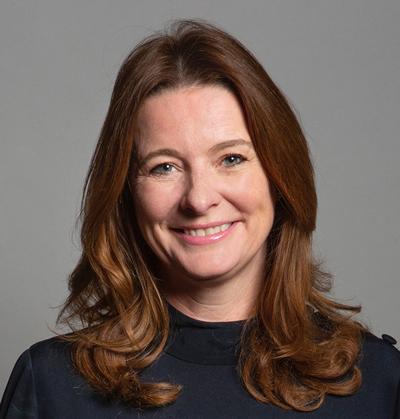As Labour’s huge lead in the polls keeps creeping up, even former Conservative strongholds are now hanging in the balance.
But what does this all mean for the MPs who have been involved in education positions?
Schools Week has delved into YouGov’s most recent MRP model to find out …
Potential wipeout for Tory edu MPs …

It’s not looking good for the current education team. Education secretary Gillian Keegan faces losing her Chichester seat to the Lib Dems, who are 12 points ahead according to YouGov.
The poll has Keegan winning just 27 per cent of the vote – a huge swing from the 58 per cent she won at the general election in 2019.
Schools minister Damian Hinds won 59 per cent of the vote for his East Hampshire seat in 2019. But YouGov is now predicting a “toss-up”, with the Tories and the Lib Dems both polling at 32 per cent.
Meanwhile, bad news too for children’s minister David Johnston (Didcot and Wantage) and skills minister Luke Hall (Thornbury and Yate), with the Lib Dems predicted to win both seats, although it ss really tight for the latter.
… former ed secs face battle, too
Kit Malthouse is the only former education secretary since the last election who looks set to be re-elected, YouGov’s model shows.
The Tories are 13 points ahead in his North West Hampshire seat. Malthouse served as education secretary for just over a month in 2022 under the Liz Truss government.
James Cleverly, who served as education secretary for two months before Malthouse, and Gavin Williamson, education secretary for two years until September 2021, are both classed as “toss-ups”.
Williamson, standing in the new seat of Stone, Great Wyrley and Penkridge, is polling three points behind Labour, while Cleverly is just three points ahead.
Michelle Donelan, the education secretary for 35 hours, is also fighting for her seat, with just one point in it between the Tories and Lib Dems in Melksham and Devizes.
Others have jumped before they were booted.
Nadhim Zahawi, the only other education secretary since 2019, is standing down as the MP for Stratford-on-Avon. He was sacked as Tory party chairman after failing to disclose that HMRC was investigating his tax affairs.
Robin Walker, chair of the education select committee and a former schools minister, is also not standing for election.
All smiles for Labour education team

Given the Labour party’s storming lead in the polls, it is no surprise that its shadow education team members are all in seats now classed as “safe” Labour wins.
Shadow education secretary Bridget Phillipson is 31 points ahead in Houghton and Sunderland South, while her North-East neighbour Catherine McKinnell, the shadow schools minister, has a 48-point lead in Newcastle-upon-Tyne North.
Meanwhile, shadow skills minister Seema Malhotra and shadow children’s minister Helen Hayes are also way ahead in the polls and odds on to win re-election.
Will the former teacher MPs get back in?
We covered the teachers and former teachers standing for election for the first time earlier this month. But what about those who are already in parliament?

There is more bad news for the Tories. Former schools minister and ex-teacher Jonathan Gullis’ Stoke-on-Trent North seat is “likely” to go to Labour, which is 20 points ahead in the polls. Gullis could even finish third to Reform.
Caroline Ansell, a former teacher who returned to the classroom temporarily during Covid to help those hit by staffing shortages, is 36 points behind in Eastbourne, which is now classed as a “safe” Lib Dem seat.
Better news for the other parties: Labour’s Emma Hardy is almost certain to be re-elected in Kingston upon Hull West and Haltemprice, while Stephanie Peacock’s Barnsley South seat is “likely” to stay Labour. Both are former teachers.
Meanwhile, Layla Moran – a former maths and physics teacher and education spokesperson for the Lib Dems – is a whopping 49 points ahead in the polls to win back her Oxford West and Abingdon seat.
Nerd note
We used YouGov’s second MRP, published last week. MRP stands for multilevel regression with post-stratification models. They are based on aggregating online opinion polling data to work out how different groups of people might vote, and then applying that to the make-up of local areas to estimate the voting intention in each constituency.
YouGov says its results are an estimate of the range of possible results if the election took place today, as opposed to a prediction for July 4.
















Your thoughts